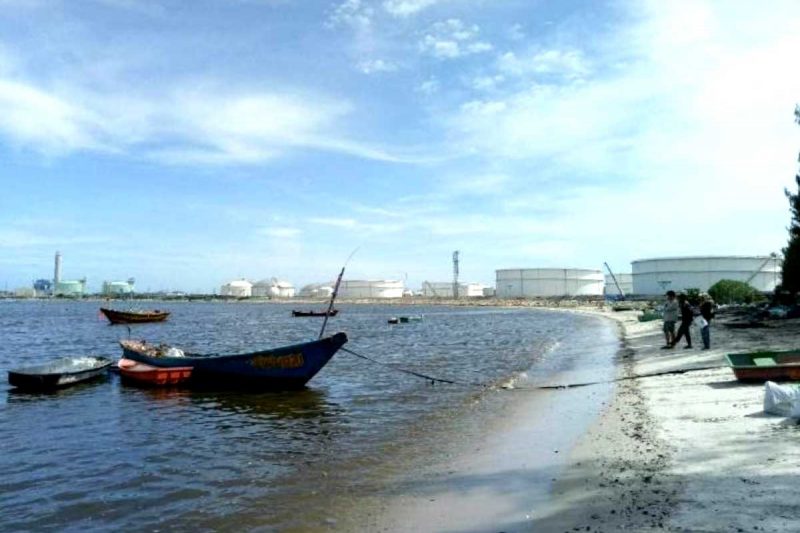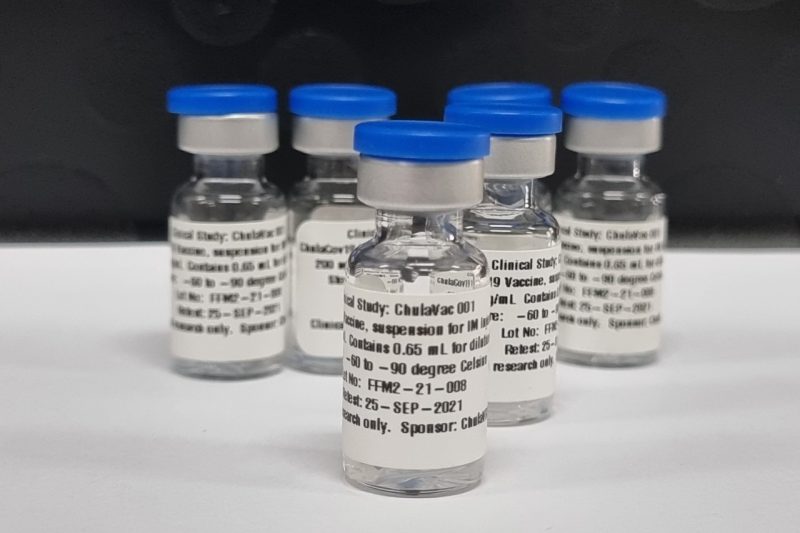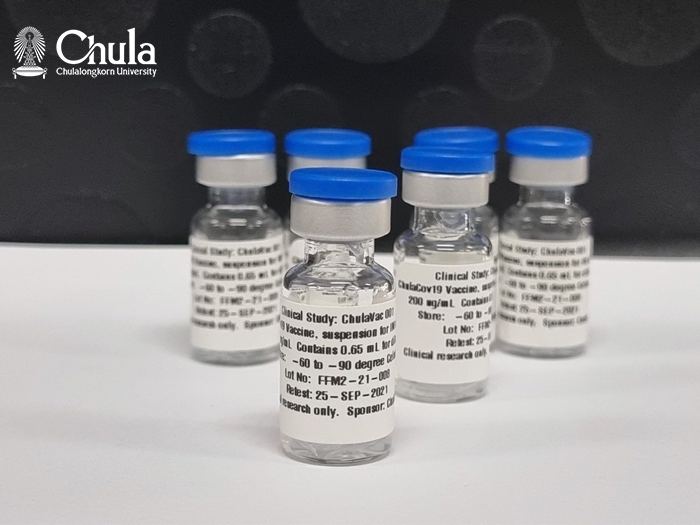Exploring the backstory of success on Chulalongkorn University’s vaccine development journey
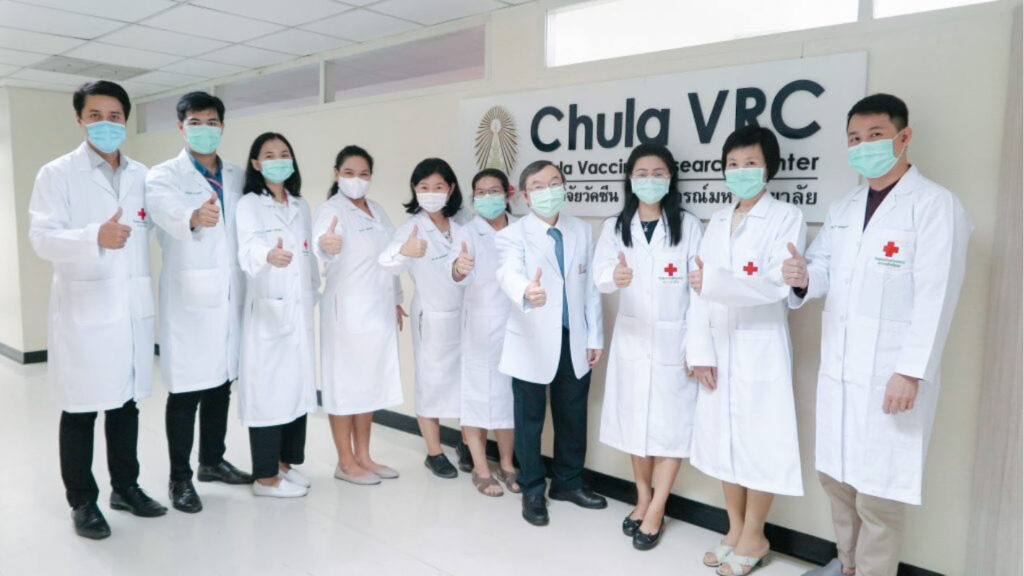
ChulaVRC [ https://www.chulavrc.org/ ] was founded in 2017 committed to join the global effort on vaccine equity. It is clear that the values of The Chula VRC, Faculty of Medicine, Chulalongkorn University “Discover, develop and deliver safe, effective and affordable vaccines” has been carried vigorously. It is evidently shown especially in other protective measures against other viruses such as the human immunodeficiency virus (HIV), Dengue, Leptospirosis, House dust mite allergies, all of which has been published with more than 19 products. Faculty of Pharmacy, Veterinarian, and Science, as well as other universities such as Chiangmai university, King Mongkut’s University of Technology Thonburi, and collaborations with other vaccine research institutes such as Vaccine Research Center (VRC) National Institute of Allergy and Infectious Diseases (NIAID) National Institute of Health (USA); Department of Adjuvant and Antigen Research, U.S., Military H.I.V. Vaccine Research Center (VRC) (WRAIR). It is no wonder that the vaccine creation process which usually takes more than 10 years, Chulalongkorn university could be able to get through such processes with haste. It certainly includes “ChulaCov19” as well.
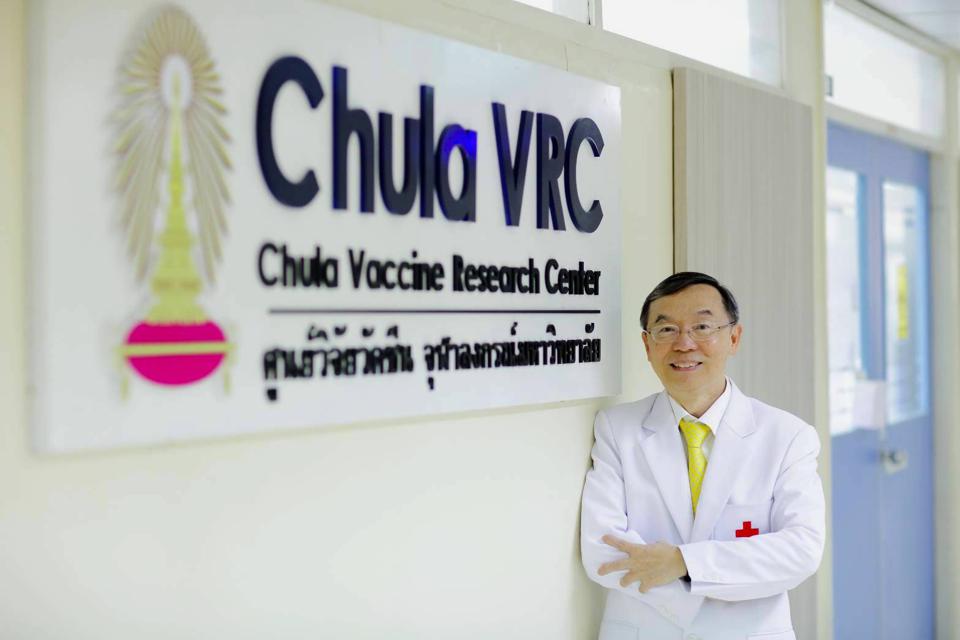
Prof. Kiat Ruxrungtham, MD. the director of project said “The development of ChulaCov19 vaccine has been supported from the government, private, and public sector such as the national vaccine institute, the national research institute, Chulalongkorn universities, and well as donation from Alumni doctors network of Faculty of Medicine, Chulalongkorn university.
During any pandemics, LMIC countries have always been facing delayed and limited vaccine access. Public good-driven approach rather than current market-driven approach should overcome global challenged vaccine inequity. Building up vaccine R&D and manufacturing capacity in LMICs are thus important. When Covid-19 pandemic started (early 2020), ChulaVRC in collaborating with Drew Weissman “the mRNA vaccine pioneer” at U. Penn has promptly developed a Covid-19 mRNA vaccine -named “ChulaCov19” and shown preclinically strong immunogenicity. This led to receiving public donation and the National Vaccine Institute grant to pursue to phase 1 trial. While developing mRNA vaccine manufacturing in Thailand, we contracted CMOs in the U.S. to produce ChulaCov19 clinical lot for clinical trials. The program started 1 month behind Pfizer and Moderna, but with slow speed because overcoming several major challenges are needed: licensing issues, competing for manufacturing slots, securing funding, ensuring QC, locked down, regulatory approval and coordinating trials. We started phase1 in June 2021, while Pfizer/BNT and Moderna received authorization in August. However, we pursue the program, because the goal is to build up our mRNA vaccine R&D and manufacturing capacity for the next pandemic and to solve other unmet need vaccine inequity issue. The ChulaCov19 (U.S. Lot) phase 1-2 results showed it is safe, well tolerated and elicited strong immunogenicity somewhat superior to the authorized mRNA vaccine. The outcomes were widely publicized on news globally and locally. The Thai Prime Minister had visited us 2 days later in August 2021 and granted us ฿2.3 Billion for manufacturing, clinical studies and if possible, for getting authorization. We partner with a Thai vaccine manufacturer “BionetAsia” and successfully manufactured same quality ChulaCov19 vaccine and showed in phase 1-2 trials in Thailand and Australia that it is well tolerated and elicited good immunogenicity. Due to the evolving of new variant “Omicron”, we thus have to develop Gen-2 bivalent vaccine, this time with a much faster speed when all capacity has been well set within the country. Our bivalent “Comvigen-WT/BA.4/.5) vaccine is now in phase 2 study in Australia and about to start in Thailand with overall N=520 (Early October 2023). Our goal is to be able to deliver authorized vaccine against future pandemics in a faster speed together with WHO-mRNA vaccine hub to make vaccine timely accessible in LMICs. ChulaVRC is also developing other unmet need vaccines: Dengue, HPV, TB, allergy and cancer vaccines. Kiat is currently a scientific advisor of the WHO mRNA vaccine tech transfer hub and ChulaVRC is part of the Hub R&D consortium to make vaccine equity possible for pandemics and unmet need vaccines in LMICS.
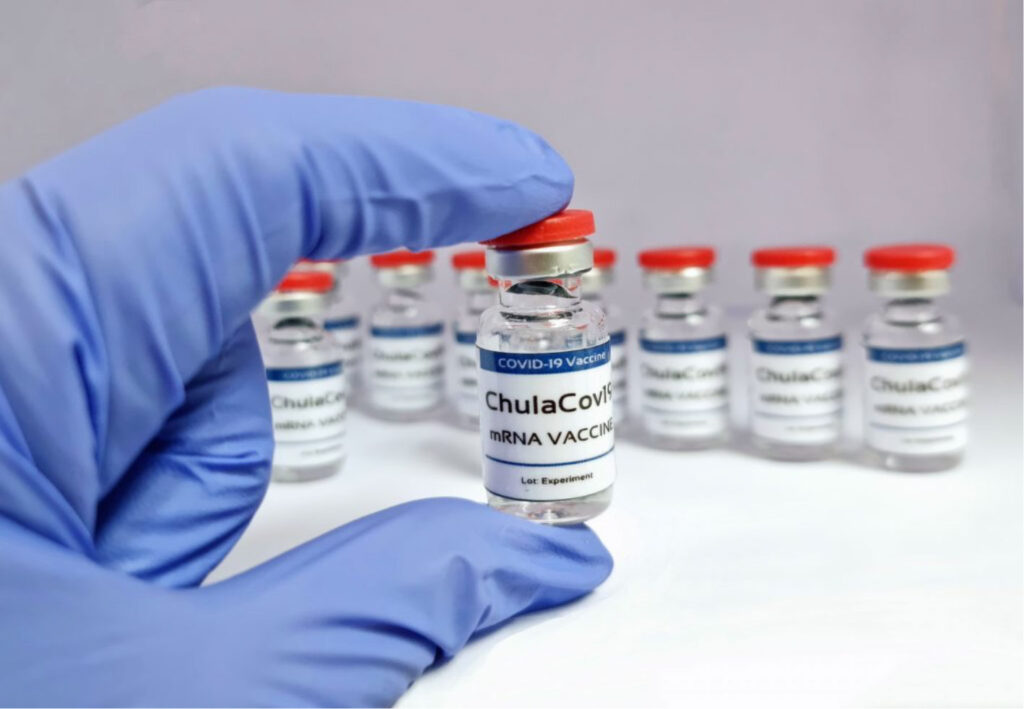
In summary, the ChulaVRC Covid vaccine development program has proven that building R&D and manufacturing novel mRNA vaccine capacity in Thailand is feasible through our leadership in managing local-global multi-parties, multidisciplinary, academic-private partnership, seeking big funding, managing Billion Baht scale of grant, and driving the program from upstream to downstream for pandemic preparedness and vaccine equity.
BY
- Chula Vaccine Research Center (Chula VRC)
- Faculty of Medicine, Chulalongkorn University
Others
Thailand’s Medical Genetics Trailblazer
Research by Dr Vorasuk Shoterelersuk is leading to new diagnosis and treatment tools to ease suffering

